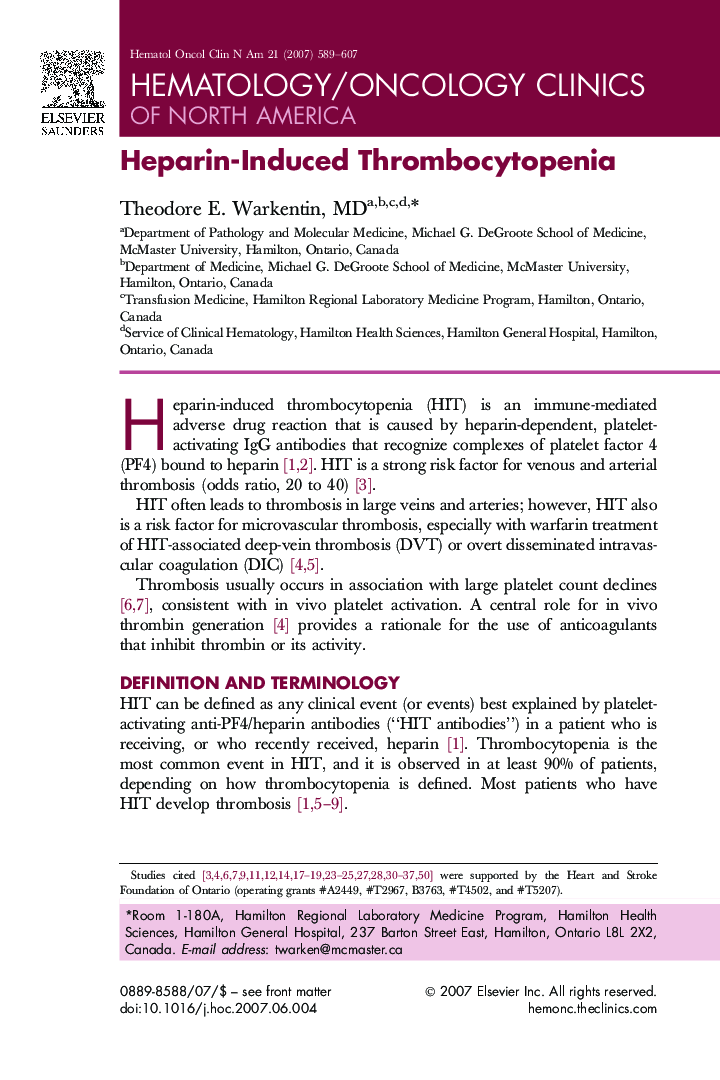| Article ID | Journal | Published Year | Pages | File Type |
|---|---|---|---|---|
| 3331954 | Hematology/Oncology Clinics of North America | 2007 | 19 Pages |
Abstract
Heparin-induced thrombocytopenia (HIT) is an immune-mediated adverse drug effect that is characterized by platelet activation, hypercoagulability, and a resulting increased risk for thrombosis, both venous and arterial. This disorder is autoimmune-like, because the target antigen is a multimolecular complex of the “self” protein, platelet factor 4, and heparin. HIT usually begins 5 to 10 days after starting heparin, especially when administered intra- or perioperatively, although a rapid onset of thrombocytopenia can occur if heparin is given to a patient with circulating HIT antibodies that resulted from a recent heparin exposure. The clinical diagnosis is supported if heparin-dependent, platelet-activating antibodies are detectable. Treatment includes cessation of heparin and use of an alternative non-heparin anticoagulant, such as danaparoid, lepirudin, or argatroban. Warfarin must be avoided or postponed, as the acute phase of HIT poses a high risk for coumarin necrosis, particularly limb loss due to venous limb gangrene.
Related Topics
Health Sciences
Medicine and Dentistry
Hematology
Authors
Theodore E. MD,
